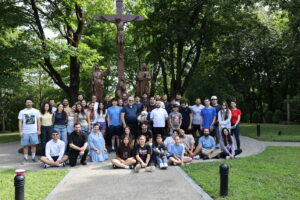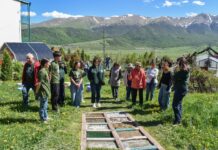Ruben Petrosyan was getting ready for work when he heard the first explosion.
The father of three had a desk in the unassuming office building that housed Nagorno-Karabakh’s security services. For weeks, he and his colleagues had known something big was coming. They knew it when their wives came back empty-handed after lining up at the shops for rations of bread and sour cream. They knew it when troops on the contact line spotted a massive Azerbaijani build up. And they knew it on Tuesday September 19, 2023, when the war started.
Minutes before the first barrage began, up in the hills, volunteers and conscripts serving in the Nagorno-Karabakh Defence Army began noticing that the Russian peacekeepers who stood between them and enemy lines were jumping into vehicles and leaving in a hurry. Across the dusty gulf of no-man’s-land, they could see camouflage netting being pulled off Azerbaijani military hardware and ambulances lining up on the asphalt roads leading to the positions opposite, flanked by barbed wire and landmines.
Ruben’s wife, Nouné, had taken their two girls to the dentist. He grabbed his jacket and ran out of the house to go and pick them up. An air raid siren was ringing out all over the city, families were racing to the shelters, shops pulling down their metal shutters. The streets were a picture of chaos and confusion, the roads choked with parents trying to pick up their children from schools and kindergartens across town. Ruben found his family, took them to a shelter under a church next to the security services building, then went into work. They didn’t know it yet, but Nouné and the children would spend the next six days there.
As the Russians abandoned their posts — reneging on their pledge to protect the breakaway region following a war in 2020 — Nagorno-Karabakh’s troops dug in for what would be the final battle in three decades of fighting over the territory, inside Azerbaijan’s internationally-recognized borders but held by Armenian separatists since the fall of the Soviet Union. Within a week, local forces had been overwhelmed and the entire population was packing its bags to flee, taking what few possessions they could pack into cars or strap on the top of buses as they did.








